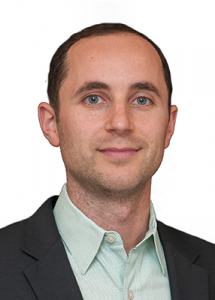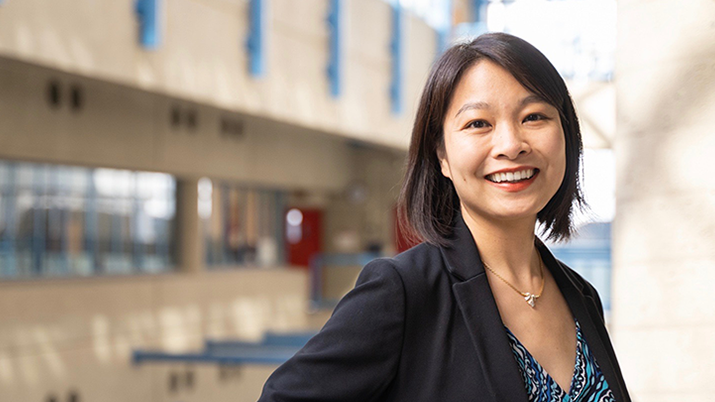

We’re thrilled to officially welcome Dr. Noah Silverberg as assistant professor in the clinical area.
UBC Psychology welcomes new faculty member, Dr. Noah Silverberg, as assistant professor in the clinical area. Dr. Silverberg joins us from UBC’s faculty of medicine and GF Strong Rehabilitation Centre.
In a Q&A, he shares his likes and dislikes, his research, and how certain paradoxical patterns sparked his curiosity of brain health.
First of all, can you tell us a little about yourself?
I worked as a clinical neuropsychologist at British Columbia’s tertiary rehabilitation hospital (GF Strong Rehab Centre) for 12 years, and spent the last eight of those developing a brain injury research program, on consecutive clinician-scientist salary awards. Transitioning to academia now will enable me to do more of what I’ve grown to love most – research and teaching. (Though, I feel like the “mature student” equivalent of a new faculty member.
More about me. Likes: Cherry blossom trees in bloom, architectural photography, CBC radio, dim sum, brevity, the blues, films with an elaborate heist and any by Wes Anderson, stand-up comedy and other second-tier performing arts. Dislikes: Lineups, staying up late, golf, heat, brunch, choir music (except gospel), poetry (except by Dick Flavin), flavoured coffee beverages, the word “utilize,” ambiguity, the conflation of fact and opinion, public swimming pools.
What kinds of questions do you try to answer through your research?
Why do people become concerned about their brain health and how can these concerns persist in the absence of neurological disease or after a brain injury has healed? In what counterproductive ways to do people cope with neurological symptoms such as forgetfulness or noise sensitivity? Can measuring these coping behaviours help us to predict who will have lingering symptoms? Can we improve neurological symptoms by teaching adaptive psychological coping skills? Does matching patients to psychological interventions based on their coping style improve treatment outcomes? I’ve been using concussion as a clinical model to answer these questions.
Can you give us an example of this in our daily lives?
Even if you haven’t had a concussion or other brain injury/illness, you have probably misplaced your keys or blanked on a someone’s name. Chances are, that moment of frustration passed and you went on with your day, attributing the memory lapse to busyness, stress, or normal aging. Others may interpret the same kind of benign memory failure as yet more evidence that they have a serious brain health problem. They may become emotionally distressed and increasingly vigilant to cognitive slips, seek a third medical opinion in search of an acceptable explanation, rely more on others instead of their own memory, and avoid social interactions as not to look stupid, which all conspire to reinforce fears of brain health decline.
How did you become interested in this line of research?
My first practicum placement as a clinical psychology graduate student was at the Rehabilitation Institute of Michigan in downtown Detroit (where interestingly and sadly, “porch collapse” was a common cause of traumatic brain injury). I saw a patient who was injured in a roll-over motor vehicle accident (while driving a convertible!), resulting in more than a week of coma, skull fractures, brain contusions and bleeds, etc. And yet, six months later, he was back at college and feeling well. Later that week, I saw another patient who, six months after the mildest of concussions, continued to report major memory problems and coped in ways that seemed unhelpful and possibly contributory (e.g., keeping a written log of every memory failure). This paradoxical pattern repeated. I became fascinated by the psychological determinants of health after brain injury.
Can you tell us about any new research that you are particularly excited about?
I am excited (and terrified) about “unblinding” to analyze a randomized controlled trial that has occupied much of my time over the past 2 years. I am especially excited about a new collaboration with Department of Psychology members (Todd, LeMoult, Palombo) and others to examine metacognitive bias and its biological correlates (e.g., with event-related potentials and electrodermal activity) in people with chronic subjective memory problems after concussion.
Do you have a motto?
Not until I was asked this question. “There is no problem so bad that you can’t make it worse.” -Chris Hadfield. Actually, that sounds rather negative. How about “carpe diem”?
What do you like to do in your free time?
As in before kids? Hike, fly fish, play hockey, watch hockey, cook multi-course meals, and eat multi-course meals.


